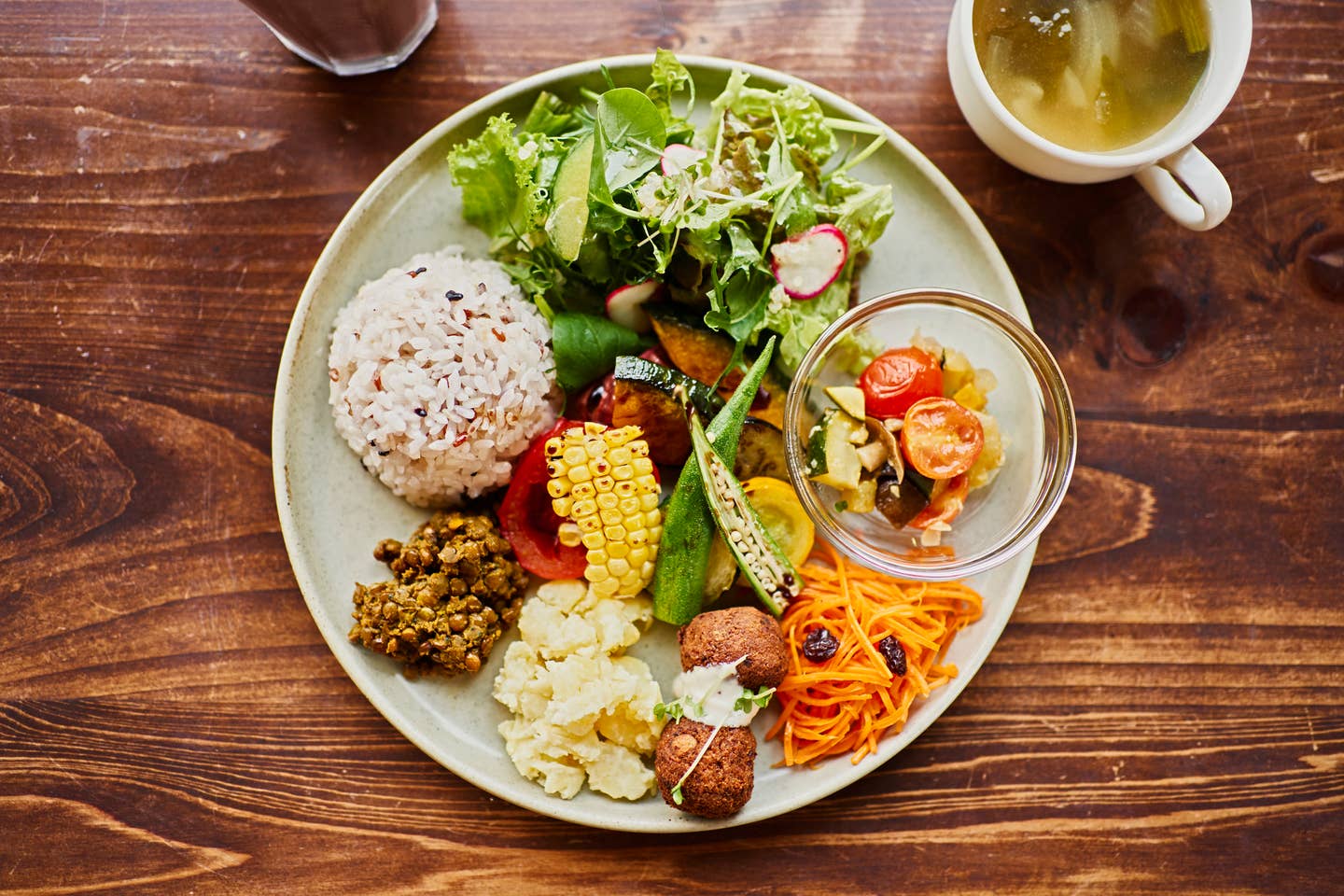
Want to Reduce Stress? Here’s What to Add to Your Plate
What’s good for the body is good for the brain, and food has a powerful effect on your mind, so much so that it can help lift your mood. Here are the many plant-based foods that can help reduce stress and boost your mood.
Depression, of course, isn’t to be taken lightly and should be treated by seeking professional help. Even just mild depression can create physical or emotional issues, and while there are certain medications known to be effective, doctors now are also prescribing dietary changes for mood disorders, from anxiety to mild depression and everything in between. Studies have found that certain plants can be an effective part of your feel-good strategies.
“A plant-rich diet can change brain chemistry in a way that gets your mood on a more even keel,” says Neal Barnard, M.D., president of the Physicians Committee for Responsible Medicine (PCRM), founder of the Barnard Medical Center in Washington, D.C., and author of Your Body in Balance.
How Diet Affects the Brain
How exactly do plants change brain chemistry? The answer has to do with inflammation. “People who are depressed have indicators of inflammation in the brain, which can cause chemical changes in the brain,” Barnard says. Yet plants are loaded with strong anti-inflammatory compounds that can often eliminate or reduce that inflammation. By eating more plants and less or no meat, you’re also improving your gut microbiome, which sends signals directly to the brain, possibly improving mood as a result.
While the mood-elevating effects of plants haven’t yet been compared to medications, numerous studies support the mood lift from plant-based diets. Barnard points to research PCRM did with GEICO employees who not only lost weight and improved diabetes measures after adopting a plant-based diet but also felt depression, and even anxiety, lift. Why? Of course, they were improving health and losing weight, which would make anybody feel better, but there was more to the picture, and it wasn’t just the addition of plants but also the absence of meat. “The more you load your plate with plants, the less room you’ll have for animal products, which is beneficial for the brain,” he says.
Foods to Boost Your Mood
1. Soy
Studies of women in Asia found that eating a diet rich in soy appears to lower the risk of depression and that the isoflavones in soy act as mood stabilizers.
Only limited research has evaluated the impact of soy or isoflavone intake on depression although several studies from China and Japan did find that the amount of soy in your diet is inversely related to your risk of depression.
The incidence of depression was a secondary outcome in the studies, which further supports the idea that in studies where the risk of depression was the primary topic studied, isoflavones significantly improved symptoms.
Bottom Line: Isoflavones, found in products like tofu, tempeh, and soymilk, have been shown to stabilize mood. Two to four servings a day seem to do the trick, according to Dr. Barnard
2. Fiber
When you eat more plants, you’ll automatically eat more fiber. After all, fiber is only found in plants, but here’s why that’s key: In one study from the journal Nutrition, as people increased their fiber intake, their risk of depression decreased. “When you increase your fiber intake to 25 to 30 grams a day, the risk of depression is reduced by 60 to 70 percent,” Barnard says.
3. Plant Protein
One study found that folks eating less meat suffered less depression with plant-strong diets reducing the risk of depression by 26 percent, Barnard says. Some studies suggest that noshing a serving of plant protein in the morning may help keep your mood stable throughout the day which is why you might consider adding soymilk, veggie sausage, beans, chickpeas, hummus, or scrambled tofu to your morning meal.
4. Foods Rich in Folate
It’s key to eat a variety of plant foods, but there’s good reason to add foods that are rich in folate such as asparagus, spinach, broccoli, beans, chickpeas, lentils, and peas. Studies show that folate deficiency may actually contribute to depression.
5. Produce
Folks who eat more fruits and veggies, staples in a plant-only diet, experience improved mental well-being, according to a study in Social Science & Medicine, which concluded that "eating fruit and vegetables may help to protect against future risk of clinical depression and anxiety," although more research is needed.
Bottom Line: Load your plate with plants for better mood and less stress.
Among other health benefits, your mood could soon be on the upswing, even as early as a few days. Regardless of whether that’s from actual changes in the brain or other changes that happen when you shift to plant-only eating, you’ll undoubtedly feel better, and that alone is worth the transition.
For more expert advice, visit The Beet's Health & Nutrition articles.
More From The Beet






